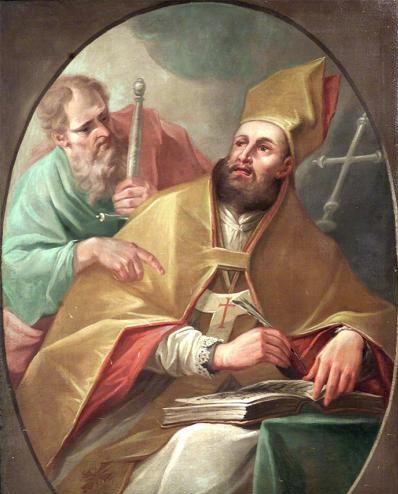
Saint of the day, 13 September: St John Chrysostom, bishop and doctor of the Church
From a young age John was a master of eloquence and a great scholar of the Holy Scriptures. He showed particular fondness for St Paul
St John, from young man of Antioch to priest
John lived in the 5th century, born in Antioch.
It was Bishop Fabian who ordained him a priest, but from his diaconate years John showed in a roundabout way that his ability to speak to people about the Scriptures was out of the ordinary.
Prior to this, the young man also had a hermit experience – six years in the desert, the last two in a cave – and this consolidated in him a character of sobriety that lends further strength to words that always shake one by their directness.
He preaches concrete love to the poorest brothers, he calls monks to works of charity and to detach themselves from money, he urges the laity to avoid the web of debauchery.
St John Chrysostom, inconvenient Patriarch of Constantinople
Around the age of 50, in 397, the big leap. John is in Constantinople to succeed Patriarch Nectarius.
Change of role, great visibility, proximity to the court.
The scourge of corruption – which teems in the palaces of Byzantine power – is true to his style.
People love him for it, his contemporaries testify to this.
Those who begin to loathe him more and more openly are the nobility and clergy attached to privilege and also the man who, instead of aligning himself with the manners of the circle he has joined, hurls scorns with his uncompromising language.
Leading the faction against John is the Patriarch of Alexandria Theophilus and the Empress Eudoxia.
In his absence they convene a synod that forces John into exile
It is 403 but the banishment is short-lived. To the fury of the people John returned to Constantinople and his adversaries relaunched the challenge.
On 9 June 404, a new condemnation removes him from the centre of the Empire, the ancient hermit finds himself in forced solitude.
John ‘Golden Mouth’, as he would be nicknamed some time later, died in 407, at Comana in Pontus, during one of the many transfers to which he was subjected.
The wisdom, corroborated by hundreds of writings, of a man and a priest convinced that ‘in all things’ the ‘glory of God’ must be given.
Read Also
Saint Of The Day, 12 September: Saint Guido Of Brabant
Saint Of The Day, 11 September: Saints Proto And Hyacinthus
Saint Of The Day: St Nicholas Of Tolentino
Saint Of The Day, 9 September: St. Peter Claver
Saint Of The Day, 8 September: Feast Of The Nativity Of Blessed Virgin Mary
The Courage Of Francis?: “It Is Meeting The Sultan To Tell Him: We Don’t Need You”
World Day Of Prayer For The Care Of Creation, Pope Francis’ Appeal For The Earth
Saint Of The Day, 6 September: Saint Zacharius, Prophet Is Celebrated
